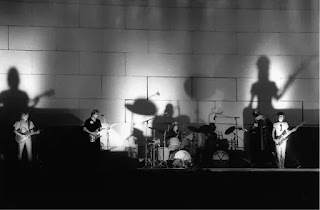Three robotic arms stand on the podium, each with a glowing baton in their hand-like apparatuses. The creature has been tasked with conducting the world-renowned Dresden Symphony Orchestra in a concert this past weekend in Dresden. In total, 16 brass players and four percussionists from the Dresden Synfoniker followed the instructions of the robot.
The robot, a MAiRA Pro S nicknamed ‘Franka Emika’ has astonishing control over details. Each robotic arm has seven joints which allow it to conduct exactly as a human arm would. Humans also helped the robot perfect its movements. The movements were stored separately for each robot. Each one learned to keep the beat and indicate changes in dynamics.
More information:
https://www.dw.com/en/dresden-symphony-orchestra-puts-robotic-conductor-in-charge/a-70490890



